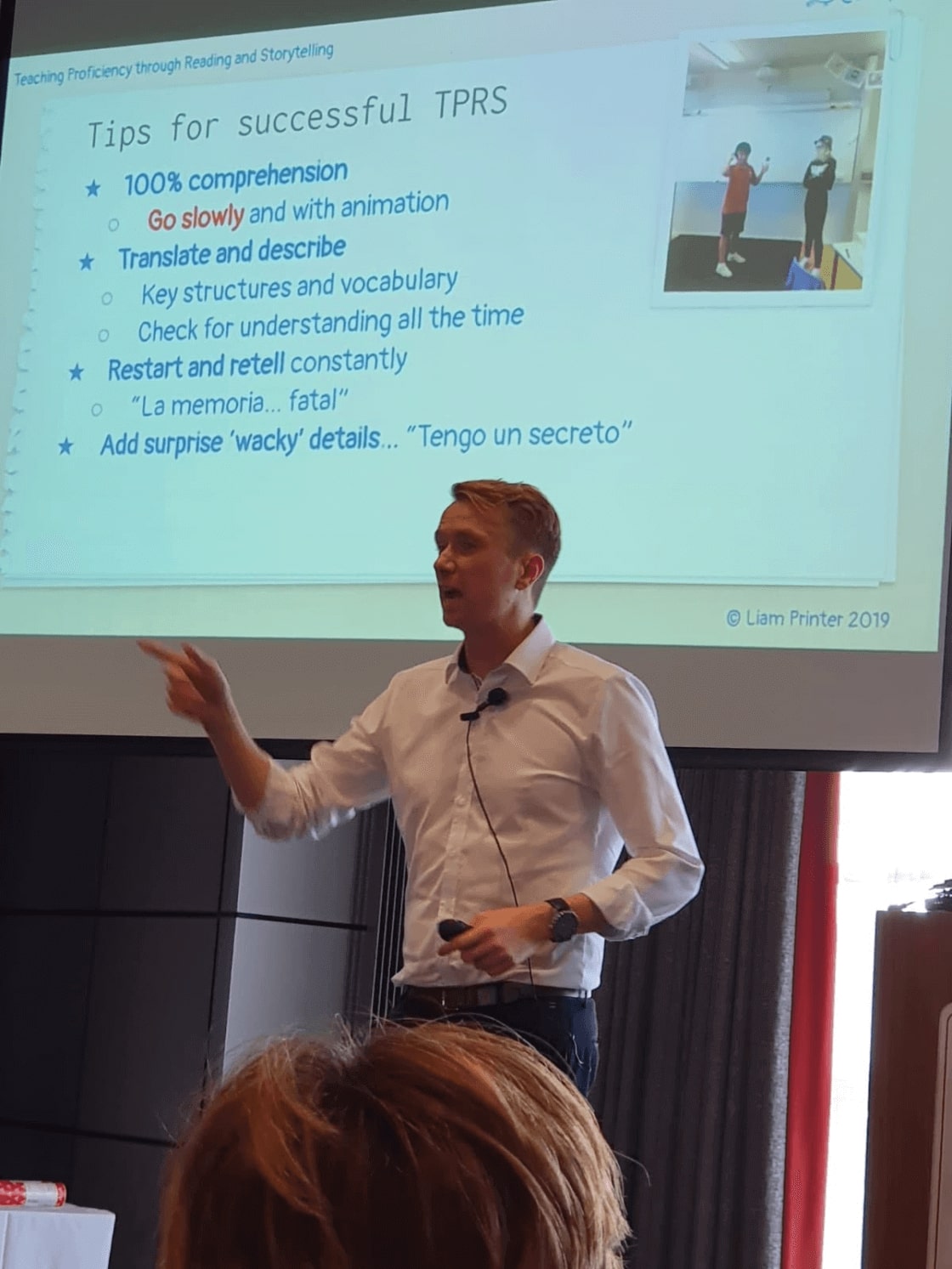Like many of you I have been going through a period of introspection and reflection on practices in my Spanish classroom and how I ensure I am always striving to have equity, social justice and respect at the heart of my teaching.
During this period I've been trying to focus on reading and listening to other voices. Using 'Spanish' names in the classroom has come up in a lot and I'd love to hear your thoughts and advice on my reflections.
Up until now I've always provided a list of Spanish names and nicknames to students at the start of the year. They are free to choose one if they wish but do not have to. I must admit that I have strongly encouraged them to go ahead and choose one though. In hindsight and upon reflection I feel this was wrong. The last thing I want is for a student to leave their own unique identity or culture at the door.
I've provided this list and allowed students to choose a Spanish name for themselves in the past as a lot of my doctorate research is on motivation and engagement. The three pillars of building intrinsically motivated, self-determined learners are:
- Competence
- Relatedness/Belonging
- Autonomy
The goal for students choosing their own unique Spanish name or nickname for our 'Españoland' class was always to build a sense of belonging and community to our class, whilst also providing them with the autonomy to choose whichever name they preferred, or what they felt they identified most with. After doing this for the past seven years, I'm quite convinced that this strategy does build a very special bond to our class. Students smile and beam when I greet them with this name, like we have our little secret society in our class. At parent meetings, they'll proudly tell parents.. "No Mum, I'm 'Juan' in Españoland". If we watch something where 'their' chosen name comes up, they get very proud and say things like "él también se llama Juan!". If I use their real name in class, they'll say "Señor, soy Juan aquí, no John". They feel like they are part of the Españoland family, like they have a special bond and belonging. It really helps to build relatedness and relationships. It's motivating.
In addition, I've had students use this opportunity to choose a new name as away to explore their sexual identity. I have two girls this year, age 12-13, who both chose Spanish male names. I double checked with them that this is what they wanted and each girl, individually, told me 'yes, I've always wanted a boys name' or 'I feel much more like a boy so I want a boys name'. For me, this was great. They were openly using boys names with their classmates in what felt like a way to express to their peers 'I think I identify with being a boy' or at least were eager to explore this openly. All of these things lead me to believe that allowing students to choose their own Spanish name for our class is something positive...
But...
Is this strategy disrespectful, offensive or harmful to native members of the Hispanic community? Is this practice unwittingly forcing students to denounce their own unique culture and name, and replace it with a new one? I must shamefully admit, I had not fully considered this until recently. At this point, it is important to understand the context of our classroom. I am a white, Irish, male teaching Spanish in Switzerland to students in an international school from all over the world. In a class of twenty, there would be typically around 15+ shared languages. I rarely, if ever, have 'heritage' speakers in my class. The demographics of our school are mainly northern Europeans or white people (around 75%), with the remaining 25% from all over the world. We have a small community of black and ethnic minority students, around 5-10% in total.
I have lived in Spain and have family there but I do not identify as Spanish. I identify as an Irish man who teaches Spanish and lives in Switzerland. So I realise I need to listen and learn from the Hispanic community on this. When I was reflecting on all this, I was trying to find a way for me, as an Irishman, to understand why my South American friends in particular, are so against students choosing their own 'Spanish' name. They've explained to me that it is mainly due to the underlying links to Spanish colonialism. So to understand this, I tried to imagine what it would be like for me.... If I walked into a classroom in, let's say, Turkey, and there was, let's say, a French person teaching English to a group of international students... and they had asked all their students to choose an Irish name from a list for their class, how would I feel? As an Irishman, I think I'd immediately think... "Why can't they just use their own names?".. but I would also think, "that is really cool that they are learning Irish names like Sineád, Siobhán, Aoife, Caoimhín, Gearóid... it's great they are learning some Irish culture through our names"... but... if they all had traditional 'English' names like John, Sarah, Tom, Elizabeth, George, I would probably be quite taken aback and also quite resistant. Why? Because as an Irishman I have a deep understanding of the oppression that was forced upon Irish people by the British occupying forces. An oppression that lasted 800 years and tried desperately to eradicate the Irish language and all Irish sounding names, but the language and those names survived. So an English teacher from France asking his international school class in Turkey to pick 'English' names would not sit well with me, even though that teacher never meant any offense or disrespect. Similar to my South American friends, I think it would unwittingly trigger links to colonialism for me personally even though all they were simply trying to do was build community in their classroom. I do not mean any offense by this, or to be political. I am merely trying to empathise and understand the issue from the perspective of my South American colleagues. For me, rightly or wrongly, the only way I can attempt to understand it is through my own cultural lens of Ireland's history.
And I guess with that I come to some kind of conclusion... we make decisions that we feel are for the good of our class but sometimes we are unaware of the cultural connotations, especially, I would argue, when we are teaching a language (and culture) that is not our own. I frequently feel inadequate, an imposter, a fake, for teaching Spanish when I am not a native speaker as but this makes me all the more passionate to try and get it right. To teach all parts of the culture and the history, the good, the bad and the ugly. The awful things the conquistadores did to the indigenous people, to the beauty and wonder of the present day Dia de Muertos tradition and celebration.
So where does that leave us on allowing students to choose a Spanish name for Españoland?
With all I've read and listened to, I feel I need to change this practice. I would love to know your thoughts on this. Especially, those who come from a Hispanic community or tradition. Do you allow students to pick a Spanish name they like or identify with? Or should we maybe only provide a list of cute Spanish nicknames? Or has this practice in all its forms had its day and it's time we just leave it completely? I think it has.
There is one thing I am definitely done with. If students do not want a Spanish nickname, even one that occurs naturally through the year, there will be no pressure whatsoever from me to have one. In fact, I am determined to embrace, uphold and celebrate their own name, heritage and culture. This is what I should have been doing all along.

